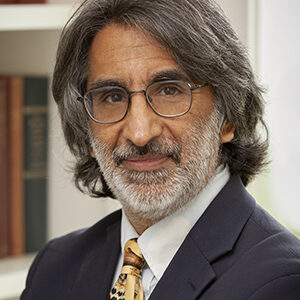The Words That Made Us
Revisit key constitutional questions through the lens of history and law.
Mondays & Thursdays | July 7, 11, 15, 18, & 21
Online Summer Courses
When Justice Amy Coney Barrett took the bench in October 2020, she solidified a 6-to-3 conservative majority on the Supreme Court. But her confirmation also brought to the forefront divisions within the conservative legal movement that have existed for decades.
In this course, students will explore the arguments and disagreements among conservatives and libertarians over how to best understand the Constitution generally and the judicial power specifically. Fellows will consider debates over originalism, natural law, traditionalism, and judicial restraint, and explore how those debates influence jurisprudence on some of the most contentious issues in American politics, from religious liberty to abortion, gun rights, and executive power.
Image Credit: Trump White House Archives | Course Card: The Supreme Court as Composed October 27, 2020, Fred Schilling, Collection of the Supreme Court of the United States
Adam J. White interviews Hon. Don Willett
This course takes place on Zoom over six sessions, held on Mondays and Thursdays, from 6 to 8 PM ET. Fellows will receive a $500 stipend contingent upon participation in the course and completion of a brief response paper. All course materials will be provided.

Adam J. White is a Resident Scholar at the American Enterprise Institute, and an Assistant Professor at George Mason University’s Antonin Scalia Law School, where he also directs the Gray Center for the Study of the Administrative State at George Mason University’s Antonin Scalia Law School.

Adam J. White is a Resident Scholar at the American Enterprise Institute, and an Assistant Professor at George Mason University’s Antonin Scalia Law School, where he also directs the Gray Center for the Study of the Administrative State at George Mason University’s Antonin Scalia Law School. He writes widely on the administrative state, the Supreme Court, the Constitution, and regulatory policy, with special focus on energy policy and financial regulation.
He is a Contributing Editor with National Affairs, The New Atlantis, and City Journal, and a contributor to the Yale Journal on Regulation‘s blog, “Notice and Comment.” He was recently appointed to the Administrative Conference of the United States, a federal advisory board focused on improving federal agencies’ practices. He also serves on the leadership council of the American Bar Association’s Administrative Law Section; on the executive committee of the Federalist Society’s Administrative Law Practice Group; and on the board of directors of LandCAN, a nonprofit organization dedicated to promoting conservation on working lands.
Prior to joining AEI, he was a Research Fellow at the Hoover Institution and an Adjunct Fellow at the Manhattan Institute. In addition to his research and writing, he practiced law with Boyden Gray & Associates, writing briefs on constitutional and regulatory issues in the Supreme Court and various other federal courts. (He continues to be “of counsel” to the firm in three pending cases involving the Consumer Financial Protection Bureau and the Federal Communications Commission.) Previously, he was a Senior Associate with Baker Botts, working on various constitutional and regulatory matters, including energy infrastructure regulation.
He received his J.D. (cum laude) from Harvard Law School, and his B.B.A. (economics) from the University of Iowa College of Business. He clerked for Judge David B. Sentelle of the U.S. Court of Appeals for the D.C. Circuit.

Akhil Reed Amar
Akhil Reed Amar is Sterling Professor of Law and Political Science at Yale University, where he teaches constitutional law in both Yale College and Yale Law School. He is Yale’s only currently active professor to have won the University’s unofficial triple crown — the Sterling Chair for scholarship, the DeVane Medal for teaching, and the Lamar Award for alumni service. His latest and most ambitious book, The Words That Made Us: America’s Constitutional Conversation, 1760-1840, came out in May 2021. He has recently launched a weekly podcast, Amarica’s Constitution.

Adam J. White
Adam J. White is a Resident Scholar at the American Enterprise Institute, and an Assistant Professor at George Mason University’s Antonin Scalia Law School, where he also directs the Gray Center for the Study of the Administrative State at George Mason University’s Antonin Scalia Law School.

Daniel DiSalvo
Daniel DiSalvo is a Senior Fellow at the Manhattan Institute’s Center for State and Local Leadership and an Assistant Professor of Political Science at The City College of New York-CUNY. His scholarship focuses on American political parties, elections, labor unions, state government, and public policy.